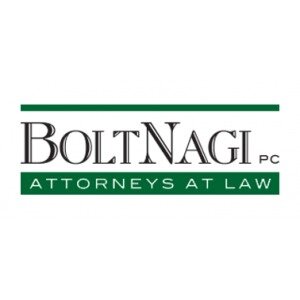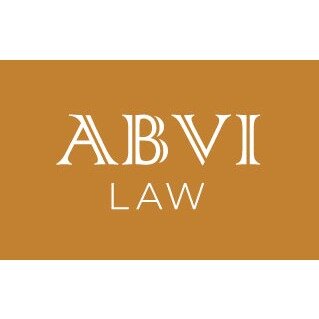Best Housing, Construction & Development Lawyers in British Virgin Islands
Share your needs with us, get contacted by law firms.
Free. Takes 2 min.
Free Guide to Hiring a Real Estate Lawyer
Or refine your search by selecting a city:
List of the best lawyers in British Virgin Islands
About Housing, Construction & Development Law in British Virgin Islands
The British Virgin Islands (BVI) is a British Overseas Territory known for its stunning natural landscapes and vibrant economy, making it a hotspot for real estate development and construction. Housing, Construction & Development law in the BVI encompasses various legal issues, including property transactions, land use regulations, construction contracts, zoning laws, and environmental considerations. The legal landscape is shaped by both local legislation and broader British legal principles, making the regulatory environment both specific and robust. Understanding these laws is crucial for developers, homeowners, and anyone involved in the construction process.
Why You May Need a Lawyer
There are several scenarios in which seeking legal advice in the field of Housing, Construction & Development may be necessary in the British Virgin Islands:
- Property Transactions: Buying or selling real estate can be complex. Legal assistance helps navigate contracts, titles, and compliance with local regulations.
- Construction Disputes: Issues such as contract breaches, delays, or disagreements between contractors and developers can arise, where legal intervention may be needed to resolve conflicts.
- Land Use and Zoning: Understanding local zoning laws and land use regulations is vital when planning new developments or modifications to existing structures.
- Environmental Regulations: Compliance with environmental laws is necessary to ensure that construction projects do not harm the natural landscape or violate legal statutes.
- Financing and Agreements: Complex financial arrangements and partnerships may require legally binding agreements to protect all parties involved and ensure smooth transactions.
Local Laws Overview
The Housing, Construction & Development sector in the BVI is underpinned by several key legal frameworks:
- Real Estate (Dealers) Act: Governs the conduct of real estate business and ensures transparency and legality in property transactions.
- Physical Planning Act: Regulates land use and sets forth guidelines for sustainable development in line with zoning regulations.
- Environmental Protection and Conservation Act: Ensures that developments take into account environmental conservation and protection measures.
- Architects and Engineers Registration Act: Provides criteria for the professional practice of architects and engineers, ensuring industry standards are met.
- Building Regulations and Codes: Dictate the technical standards for the construction of buildings to ensure safety and structural integrity.
Frequently Asked Questions
1. How do I find if a property is zoned for residential or commercial use?
You can inquire with the Planning Department or hire a local attorney who understands the zoning laws to verify the zoning status of a property.
2. What are the steps to obtain a building permit in the BVI?
Generally, you need to submit detailed plans and documents to the Building Authority, including structural designs and environmental assessments, and comply with local regulations.
3. Can foreign nationals purchase property in the BVI?
Yes, but they often must obtain a Non-Belonger Land Holding License and comply with certain conditions, making it beneficial to have legal counsel.
4. What should I do if I encounter a dispute with my contractor?
Attempt mediation or arbitration first, but legal proceedings through a court may be necessary if disputes cannot be resolved amicably.
5. Are there specific regulations for coastal developments in the BVI?
Yes, there are strict guidelines and assessments that need to be adhered to, due to environmental considerations, which a local attorney can help navigate.
6. How can I ensure my construction project complies with safety standards?
Hire certified professionals and regularly consult the Building Authorities for updates on safety regulations and inspections required.
7. What are the penalties for non-compliance with building codes?
Penalties can range from fines to demolition orders, depending on the severity of non-compliance. Legal guidance is advisable to avoid such issues.
8. Can construction contracts be customized in the BVI?
Yes, but it is advisable to have them reviewed by a legal expert to ensure they comply with local laws and protect all parties involved.
9. How do I handle potential environmental impacts of my project?
Conduct an Environmental Impact Assessment (EIA) as part of the project planning and work with both environmental consultants and legal professionals.
10. What recourse is available if a property transaction goes wrong?
You could engage in litigation or seek alternative dispute resolution mechanisms under the guidance of a legal professional.
Additional Resources
- British Virgin Islands Planning Authority: Offers information on zoning, permits, and land use policies.
- Real Estate Association of the British Virgin Islands: Provides resources and networking for real estate professionals.
- Environmental Protection Agencies: Help ensure compliance with environmental regulations in development projects.
- Legal Libraries and Publications: Offer insights and updates on current laws and legal changes within the construction and development sector.
Next Steps
If you find yourself in need of legal assistance concerning Housing, Construction & Development in the British Virgin Islands, consider the following steps:
- Research and Select a Lawyer: Look for practitioners with experience in real estate and construction law, and verify their credentials and reputations.
- Schedule a Consultation: Meet with potential lawyers to discuss your situation and understand how they might assist you.
- Gather Necessary Documentation: Prepare any relevant documents, such as contracts, plans, and correspondence, to provide comprehensive information to your legal counsel.
- Clarify Fees and Services: Ensure you understand the fee structure and services offered by your legal advisor to avoid misunderstandings.
Engaging an experienced local attorney can help you navigate the complexities of the legal framework in the BVI and adequately protect your interests during any real estate or construction endeavors.
Lawzana helps you find the best lawyers and law firms in British Virgin Islands through a curated and pre-screened list of qualified legal professionals. Our platform offers rankings and detailed profiles of attorneys and law firms, allowing you to compare based on practice areas, including Housing, Construction & Development, experience, and client feedback.
Each profile includes a description of the firm's areas of practice, client reviews, team members and partners, year of establishment, spoken languages, office locations, contact information, social media presence, and any published articles or resources. Most firms on our platform speak English and are experienced in both local and international legal matters.
Get a quote from top-rated law firms in British Virgin Islands — quickly, securely, and without unnecessary hassle.
Disclaimer:
The information provided on this page is for general informational purposes only and does not constitute legal advice. While we strive to ensure the accuracy and relevance of the content, legal information may change over time, and interpretations of the law can vary. You should always consult with a qualified legal professional for advice specific to your situation.
We disclaim all liability for actions taken or not taken based on the content of this page. If you believe any information is incorrect or outdated, please contact us, and we will review and update it where appropriate.
Browse housing, construction & development law firms by city in British Virgin Islands
Refine your search by selecting a city.














